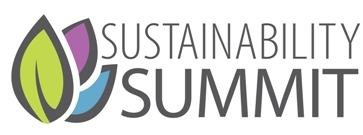The Smart Energy Solutions for Africa (SESA) consortium project has launched the first “SESA Call for Entrepreneurs”. Small and medium-sized enterprises, particularly women-led, with a focus on sustainable energy solutions in Ghana, Malawi, Morocco and South Africa are encouraged to apply.
As a consortium partner, Siemens Stiftung will provide entrepreneurs selected with funding from €50,000 (R850,000) up to €70,000 (R1,200,000) per business over an 18-month period, and an opportunity to join the SESA Incubator Programme.
“The call leverages social entrepreneurs’ talents, skills, and innovations to not only address climate change but also pave the way for social and economic development in rural areas”, says Dr. Nina Smidt, Managing Director and Spokesperson of Siemens Stiftung. “Women are at the heart of this transformation. Supporting female-led enterprises enables the inclusion of vulnerable groups more at a climate risk, and in the process accelerates the realisation of the United Nation’s Sustainable Development Goals.”
Reliable, affordable, and sustainable energy access has been a challenge for rural communities in Africa. SESA, a European Commission-funded project, aims to test, validate and later replicate innovative solutions as well as business models to accelerate the green transition across the African continent. It was launched in October 2021 with a duration of 48 months and is operational in nine African countries: Ghana, Kenya, Malawi, Morocco, Namibia, Rwanda, South Africa and Tanzania.
“The uYilo e-Mobility Programme is a SESA partner and the lead for the South African validation project,” says uYilo Director, Hiten Parmar. “South African entrepreneurs successful in securing their place in this project will benefit on access to funding for scaling technology solutions, but also important development through incubator programme and technical and business mentorship.”
This “Call for Entrepreneurs” focuses primarily on the Productive Use of Energy (PUE) solutions. Each of the four participating countries Ghana, Malawi, Morocco, and South Africa has developed an individual country challenge with a stronger local focus, concentrated in specific areas to address their regional dynamics.
“The SESA Call for Entrepreneurs is an opportunity for entrepreneurs to provide sustainable solutions that improve access to energy in remote areas,” says uYilo Programme Manager, Edem Foli. “This funding is available in a focused, goal-oriented environment which can propel a small business much faster than it could possibly achieve working alone. We encourage all entrepreneurs to make application for this project.”
The “Call for Entrepreneurs” runs from 26th September until 20th November 2022. The SESA Incubator Programme will start in February 2023. To apply, visit bit.ly/3C81ulc
FOR MORE INFORMATION:
uYilo eMobility Programme
+27 10 005 5346
uYilo Electric Mobility Programme
The national uYilo Electric Mobility Programme was established in 2013 as a multi-stakeholder, collaborative programme focused on enabling, facilitating and mobilising electric mobility in South Africa. uYilo is an initiative of the Technology Innovation Agency, a public entity of the Department of Science and Innovation. uYilo’s corporate satellite offices are located in Johannesburg and facilities headquartered in Gqeberha (formerly Port Elizabeth).
Smart Energy Solutions for Africa (SESA)
SESA is a collaborative project between the European Union and nine African countries (Kenya, Ghana, South Africa, Malawi, Morocco, Namibia, Tanzania, Rwanda, and Nigeria) that aims at providing energy access technologies and business models that are easily replicable and generate local opportunities for economic development and social cohesion in Africa.
Through several local active labs, it is expected to facilitate the co-development of scalable and replicable energy access innovations, to be tested, validated, and later replicated throughout the African continent. These solutions will include decentralized renewables (solar photovoltaics), innovative energy storage systems including the use of second-life electric vehicle batteries, smart microgrids, waste-to-energy systems (biomass to biogas), climate-proofing, resilience and adaptation, and rural internet access.sesa-euafrica.eu/
About Siemens Stiftung
As a nonprofit foundation, we promote sustainable social development, which is crucially dependent on access to basic services, high-quality education, and an understanding of culture. To this effect, our project work supports people in taking the initiative to responsibly address current challenges. Together with partners, we develop and implement solutions and programs to support this effort, with technological and social innovation playing a central role. Our actions are impact-oriented and conducted in a transparent manner.siemens-stiftung.org/en

